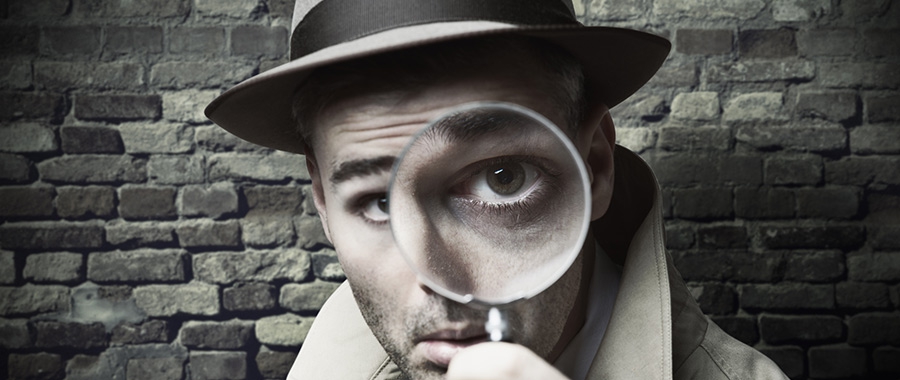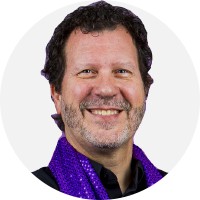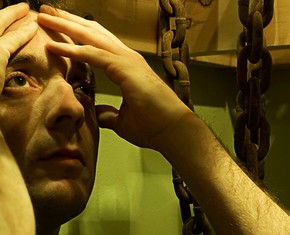The views expressed in our content reflect individual perspectives and do not represent the authoritative views of the Baha'i Faith.
The main character of my new mystery novel Consulting Detective is a Baha’i named Mihdi Montgomery, who works as a police investigator in a Chicago suburb.
I like mysteries, but if you read several books in the genre you might not get a good impression of fictional detectives. Most of them are deeply flawed. In differing degrees, they tend to have trouble with their personal relationships, they lie, they cheat, they are bullies, they drink too much, they have insufferable egos, and they treat people with disrespect.
I pondered how things might be different if a Baha’i were a detective. So, I thought about some principles that guide Baha’is in their lives and their work, and particularly in how they investigate and solve problems. I immediately thought of this passage from Baha’u’llah’s Book of Certitude:
When a true seeker determineth to take the step of search in the path leading to the knowledge of the Ancient of Days, he must, before all else, cleanse and purify his heart, which is the seat of the revelation of the inner mysteries of God, from the obscuring dust of all acquired knowledge, and the allusions of the embodiments of satanic fancy. He must purge his breast, which is the sanctuary of the abiding love of the Beloved, of every defilement, and sanctify his soul from all that pertaineth to water and clay, from all shadowy and ephemeral attachments. He must so cleanse his heart that no remnant of either love or hate may linger therein, lest that love blindly incline him to error, or that hate repel him away from the truth. – p. 192
This isn’t addressed to detectives, but the concepts are relevant: have pure intentions, don’t get stuck in assumptions, don’t be attached to particular outcomes, and don’t let your conclusions be affected by your personal feelings towards someone. That’s a pretty simplistic interpretation of the passage, but it was helpful to me as I wrote my novel. At this point in my creation of the novel, I thought about calling it True Seeker.
I also thought of the Baha’i principle of the independent investigation of the truth, a frequent theme in Abdu’l-Baha’s talks in America, as well as in his letters and tablets:
Ye have investigated the truth and have been freed from imitations and superstitions, that ye observe with your own eyes and not with those of others, hearken with your own ears and not with the ears of others, and discover mysteries with the help of your own consciences and not with those of others. For the imitator saith that such a man hath seen, such a man hath heard, and such a conscience hath discovered; in other words he dependeth upon the sight, the hearing and the conscience of others and hath no will of his own. – Abdu’l-Baha, Selections from the Writings of Abdu’l-Baha, p. 29.
This passage recommends basically the same guidelines stated slightly differently: focus on reality, do your own investigation, and draw your own conclusions. I thought about calling the book Independent Investigator.
Most fictional detectives are loners. Even the nice ones withhold evidence and thoughts from their colleagues, if they even have colleagues. Being a loner is not the Baha’i way. Baha’u’llah wrote:
In all things it is necessary to consult. This matter should be forcibly stressed by thee, so that consultation may be observed by all. The intent of what hath been revealed from the Pen of the Most High is that consultation may be fully carried out among the friends, inasmuch as it is and will always be a cause of awareness and of awakening and a source of good and well-being. – Baha’u’llah, from a tablet to an individual Baha’i.
The Baha’i teachings don’t make an exception for detectives, but say we should consult “in all things:”
Consultation bestoweth greater awareness and transmuteth conjecture into certitude. It is a shining light which, in a dark world, leadeth the way and guideth. For everything there is and will continue to be a station of perfection and maturity. The maturity of the gift of understanding is made manifest through consultation. – Ibid.
I’m still trying to figure out what “The maturity of the gift of understanding is made manifest through consultation” means, but it’s clear to me that we should all consult. These thoughts led me to use the title Consulting Detective.
Of course, it doesn’t hurt that Sherlock Holmes, in The Sign of the Four, called himself “The only unofficial consulting detective.” He had something else entirely in mind, but the phrase resonates with lovers of mysteries—and every spiritual seeker loves a mystery.
You can find a link to buy my new book ’Consulting Detective’ in my bio below!
















Comments
Sign in or create an account
Continue with Googleor